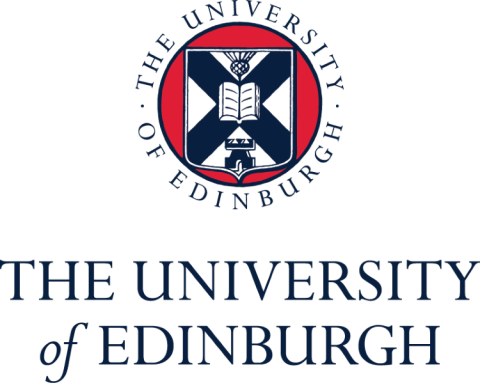
Decolonising the curriculum – how do I get started?
Rowena Arshad provides pointers for any teaching academics considering how to get started on decolonising their curriculum
If you are thinking about decolonising your curriculum and wondering where to start, do not worry. You are in the majority. Many people are supportive of the idea in principle but are not sure what to do.
Decolonising the curriculum is not just a fad as a result of the escalation of Black Lives Matter in 2020. The concept emerged from the 2015 Rhodes Must Fall campaign in Cape Town. Those pushing for decolonising the curriculum argue that the production, nature and validity of knowledge is not a neutral project. During colonial times, as suggested Edward Said, author of Orientalism and a leading thinker of postcolonial studies, knowledge became a commodity in colonial exploitation, as did other natural resources.
Disciplines that are part of the academy have not been immune to the process of colonisation. How we gain an understanding of the world will have been grounded in cultural world views that have either ignored or been antagonistic to knowledge systems that sit outside those of the colonisers. Our research and teaching methodologies, all instruments of knowledge production, were also used as ways to classify, organise and represent knowledge. Concepts of academic freedom or disciplinary integrity have allowed some scholars to distance themselves from any responsibility to engage with the decolonisation project. Other academics have been concerned that decolonising the curriculum is about dismissing or deleting what has been.
- Equal research partnerships are a myth – but we can change that
- Engaging with the world from your home classroom: tips for internationalising the curriculum
- On achieving equality, diversity and inclusion: challenging Islamophobia across higher education
Decolonising is not about deleting knowledge or histories that have been developed in the West or colonial nations; rather it is to situate the histories and knowledges that do not originate from the West in the context of imperialism, colonialism and power and to consider why these have been marginalised and decentred.
Harshad Keval of Canterbury Christ Church University talks about repositioning “who and what gets to occupy the centre and the margins of ideas and society” and to rebalance that power. Decolonising the curriculum is about being prepared to reconnect, reorder and reclaim knowledges and teaching methodologies that have been submerged, hidden or marginalised. As educators and researchers with a thirst for knowledge, we should be embracing the decolonising project as one that opens new ways of knowing, of researching and of understanding.
So how do we begin decolonising our courses?
There is no universal template. How we take forward decolonising the curriculum has to be contextual to our discipline and subject areas. I would suggest we see decolonising the curriculum as an approach rather than trying to get a neat definition for the term. However, some guiding points will assist:
- First, develop understanding of why decolonising the curriculum is important as part of our commitment to justice. We can start by examining what coloniality means – read Walter D Mignolo’s 2017 paper “Coloniality is far from over, and so must be decoloniality” as a starter.
- Examine our own subject discipline to identify if there are alternative canons of knowledge which have been marginalised or dismissed as a result of colonialism that should be included and discussed with students.
- Ensure a range of voices and perspectives are represented and ways you might re-conceptualise the curriculum to reflect wider global and historical perspectives.
- Consider the diversity of our student groups and ensure learning content moves beyond Western to global frameworks.
I have found it helpful to consider the decolonising project in stages.
Diversify a reading list is one ingredient
Diversifying the reading list has been one route that many have chosen as a quick way to begin the journey of decolonising the curriculum. Course reading lists are a legitimate focus for reform and Karen Schucan Bird and Lesley Pitman from UCL, analysing research they conducted on higher education reading lists in 2019, suggest that reading lists are “representation devices serving to reflect particular perspectives and knowledge”.
There is subliminal value in diversifying the reading list because it is a way of acclimatising learners to the presence of a range of writers, be that writers of colour, writers who identity as LGBTQ or other characteristics. It feels like a small change but one that people from minority and under-represented groups have identified as important to improving their learning experience. It also addresses issues of representation by recognising the contributions of those who have been made invisible by structural racism. This 2021 article by Binuraj Menon of the University of Warwick, “The missing colours of chemistry”, gives a useful summary of why it is important to ensure our teaching materials are diverse but also why we need to pay attention to issues of representation.
From diversifying to decolonising
However, diversifying the reading list is about developing an inclusive curriculum. In itself, it does not challenge racism or engage the learner explicitly in the topic of decolonisation. To do this, we need to provide opportunities for the students to discuss the historical legacy of colonisation for that subject area. For example, in astronomy when we discuss life, universe, planet and stars, we can open up discussions on how different perspectives might understand these topics. How might different indigenous communities understand and talk about stars? Would it be in the language of exploration and conquest of space or in terms of navigation and survival?
In mathematics, is there a job to do to widen the attributions to mathematical theorems to original sources and to reflect on why such information is generally unknown. For example, what is the relationship of the Kerala School of Indian scholars with one of the founding principles of modern mathematics: calculus. Why are Isaac Newton and Gottfried Leibnitz often credited with discovering calculus at the end of the 17th century when the Kerala School scholars were exploring this 250 years earlier?
Is there terminology that we could adjust? For example, instead of using master or slave to represent computing agents, can we use instead the terms co-ordinator or workers – this is taken from decolonising work done by colleagues in informatics at the University of Edinburgh.
How can we use our subject content to open up discussions about racism and anti-racism while enabling learners to question the origins of knowledge beyond the prism of the Global North? The SOAS Toolkit (p8 and 9) provides useful starter questions for shaping content.
Check out how lecturers are trying to put it into practice at the University of Edinburgh and De Montfort University.
If we are serious about developing an inclusive, anti-racist and decolonised curricula, there is a need to consider the term “whiteness” and how this affects everyday experiences of those who are not white. I use whiteness as a concept rather than to refer to individual people. American sociologist Joe Feagin talks about the importance of understanding how an “overarching white world view”, resulting from centuries of colonialism and imperialism, has impacted knowledge creation, curation and conveyance.
The complexities and challenges we face globally require us to be able to engage with contradictions, embrace diversity and critically question issues of privilege while educating and acting for justice. Rather than rejecting the decolonisation of curricula as “cancel culture”, view the concept as an enlightening and transformative endeavour that enriches education.
Rowena Arshad is professor emerita at the Moray House School of Education and Sport, IECS, University of Edinburgh.
If you would like advice and insight from academics and university staff delivered directly to your inbox each week, sign up for the Campus newsletter.
Additional Links
Read more of Rowena Arshad’s thoughts in her original blog post From Inclusion to Transformation to Decolonisation.




